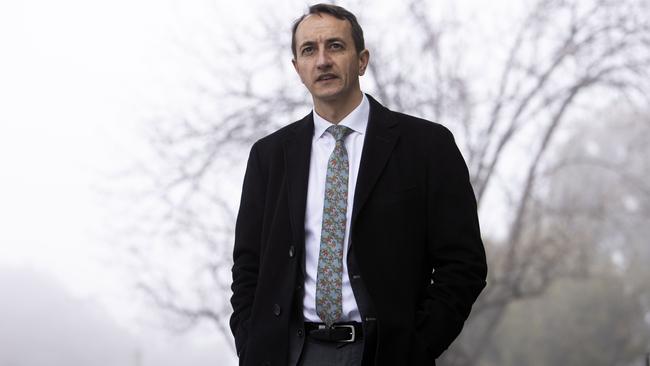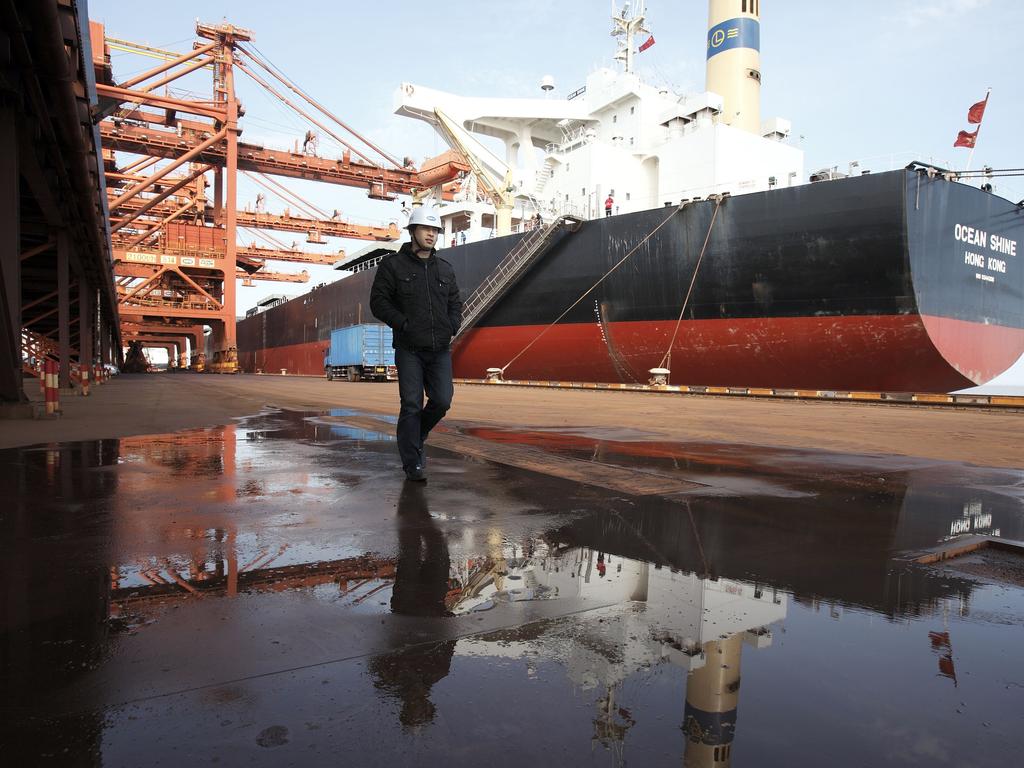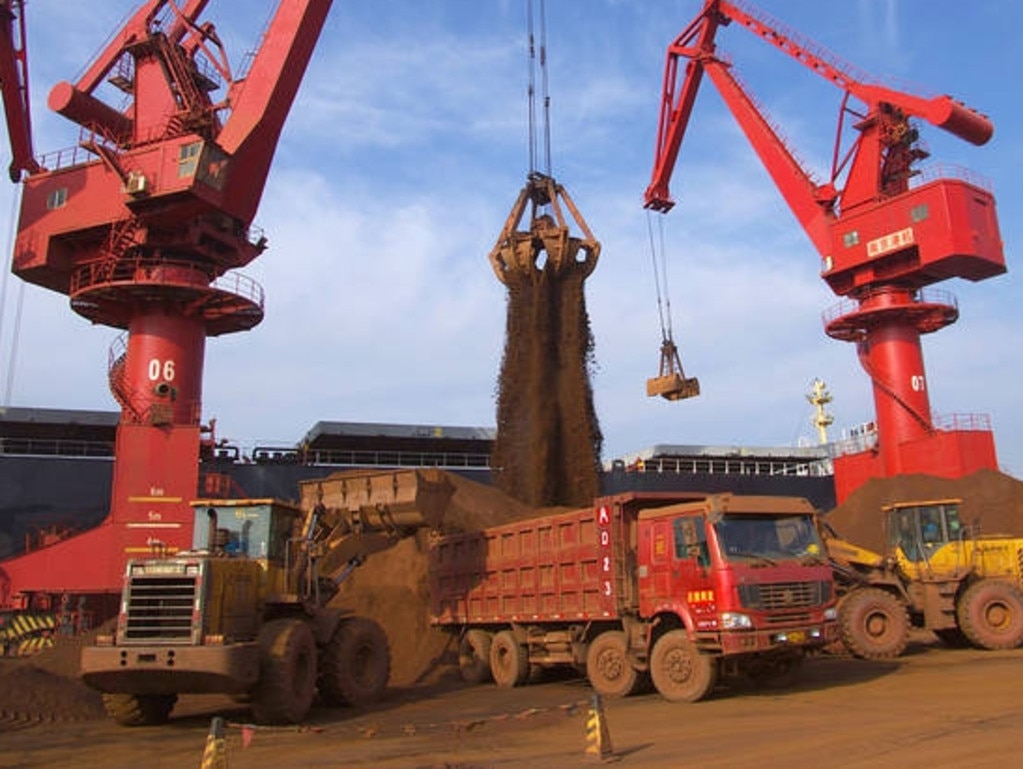ASIO probes Chinese Communist Party members in Shanghai consulate
Spy agency begins investigating revelations CCP members have worked in Australia’s Shanghai consulate for years.

The nation’s top spy agency has begun investigating revelations that Chinese Communist Party members have been working in Australia’s consulate in Shanghai for years.
An investigation by The Australian found at least 10 consulates in Shanghai had CCP members employed as senior political and government affairs specialists, clerks, economic advisers and executive assistants.
The expose has been labelled a “wake-up call” by one member of the US Homeland Security Committee, while Australian parliamentarians are calling for an urgent probe.
The investigation, based on a leak of official CCP membership records from Shanghai — the first of its kind in the world — also revealed how CCP branches were embedded in major companies, including those holding sensitive defence contracts with the Australian and US governments.
Two sources familiar with the matter said the Australian Security Intelligence Organisation had begun investigating the revelations that the CCP had infiltrated the diplomatic missions through a government-sponsored recruitment agency, the Shanghai Foreign Agency Service Department.
The database shows CCP members have been or are currently employed in Australian, US, British, German, Swiss, Indian, New Zealand, Italian and South African missions in Shanghai.
“There’s intelligence-gathering going on,” one source said.
The second source said: “ASIO uses a lot of sources as part of its counterintelligence efforts and things like this don’t come along everyday.”
Australian Strategic Policy Institute executive director Peter Jennings warned there was an “intelligence risk within the consulate itself” and said Australia had dismissed the significance of the CCP as not being important.
“I think that’s been a fundamental mistake,” said Mr Jennings, a former Defence Department deputy secretary.
“Being a member of the party is not just a casual thing. What that means is that if you want to become a member, the party will have an ability to call on you to do what they want you to do.
“If you work at a consulate, you can be guaranteed the party will be aware of that and expecting their party member to furnish them with any info that is useful.”
“You’ve really got to make sure your locally engaged staff are not engaged in anything that involves providing policy advice and are essentially kept away from the inner core of embassy functions.”
The Australian’s investigation followed a leak of official CCP records that exposed the personal details of 1.95 million members. It found members and even party branches at some of the world’s largest companies including vaccine manufacturers AstraZeneca and Pfizer, aerospace giant Boeing and at ANZ.
While there is no evidence that anyone on the party membership list has spied for the Chinese government — many became members to boost their career prospects — the revelations raised concerns about safeguards in place at consulates and major corporations.
CCP members, of whom there are 92 million, must pledge an oath that puts the party’s interests above all and “be ready at all times to sacrifice my all for the party”.
Labor senator Kimberley Kitching, co-chairwoman of the Inter-Parliamentary Alliance on China, said she expected intelligence agencies would be examining the report.
Republican Party senator Joshua Hawley, who sits on the Homeland Security Committee, said the reports should serve as a wake-up call.
“CCP agents have no place in US government facilities, and this report should serve as a much-needed wake-up call to Washington DC and corporate executives, who continue to welcome the Chinese government with open arms,” Senator Hawley said.
Liberal MP Dave Sharma, Australia’s former ambassador to Israel, said it was “a well-known secret in diplomatic circles that your missions in some countries are selectively targeted for staffing by the governments of those countries”.
“This has been our working assumption for some time, and the operations of Australia’s diplomatic missions factor this in and have a range of protective measures in place to guard against this,” Mr Sharma said.
“We’ve got to worry about the people who are CCP members, but even those who are not are nonetheless susceptible to pressure and suasion from their government.
“That’s the reality of the political system in China — the state is supreme to the individual.”
Australia’s former ambassador in China, Geoff Raby, said it was common knowledge that members of the CCP were in embassies and companies.
“Within the embassies, there’s ample and very good separation between sensitive areas and non-sensitive areas,” Mr Raby said.
“And most of what the embassy does is non-sensitive … what you do is you have hard defences within the embassy and a hard separation. Everyone is aware of that.”
The database was leaked in mid-September to the newly formed international group, the Inter-Parliamentary Alliance on China, which is made up of 150 legislators around the world.
It was then provided to an international consortium of four media organisations: The Australian, The Mail on Sunday in Britain, De Standaard in Belgium and Swedish journalists.
The Australian was able to obtain independently a more complete version of the same database from a confidential source which allowed cybersecurity firm, Internet 2.0, to track the data back to its original leak and conduct metadata analysis and verification.
Rex Patrick, a key crossbench senator, said Foreign Minister Marise Payne, who declined to comment on the revelations, needed to answer questions about why DFAT used an employment firm that recruited CCP members to consular roles.
He said Senator Payne must ensure that sensitive or classified information was not available to any embassy or consulate staff who are CCP members. If she failed to do that, he would call on the Senate to investigate.
“I think it would give rise to legitimate questioning of the minister through normal parliamentary processes and then subject to those answers, perhaps an inquiry,” Senator Patrick said.
“The key question that needs to be asked is: do these people in the positions they hold have access to sensitive or classified information? And if that is the case, it does raise a concern.”
ADDITIONAL REPORTING: JOE KELLY







To join the conversation, please log in. Don't have an account? Register
Join the conversation, you are commenting as Logout